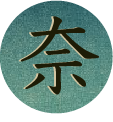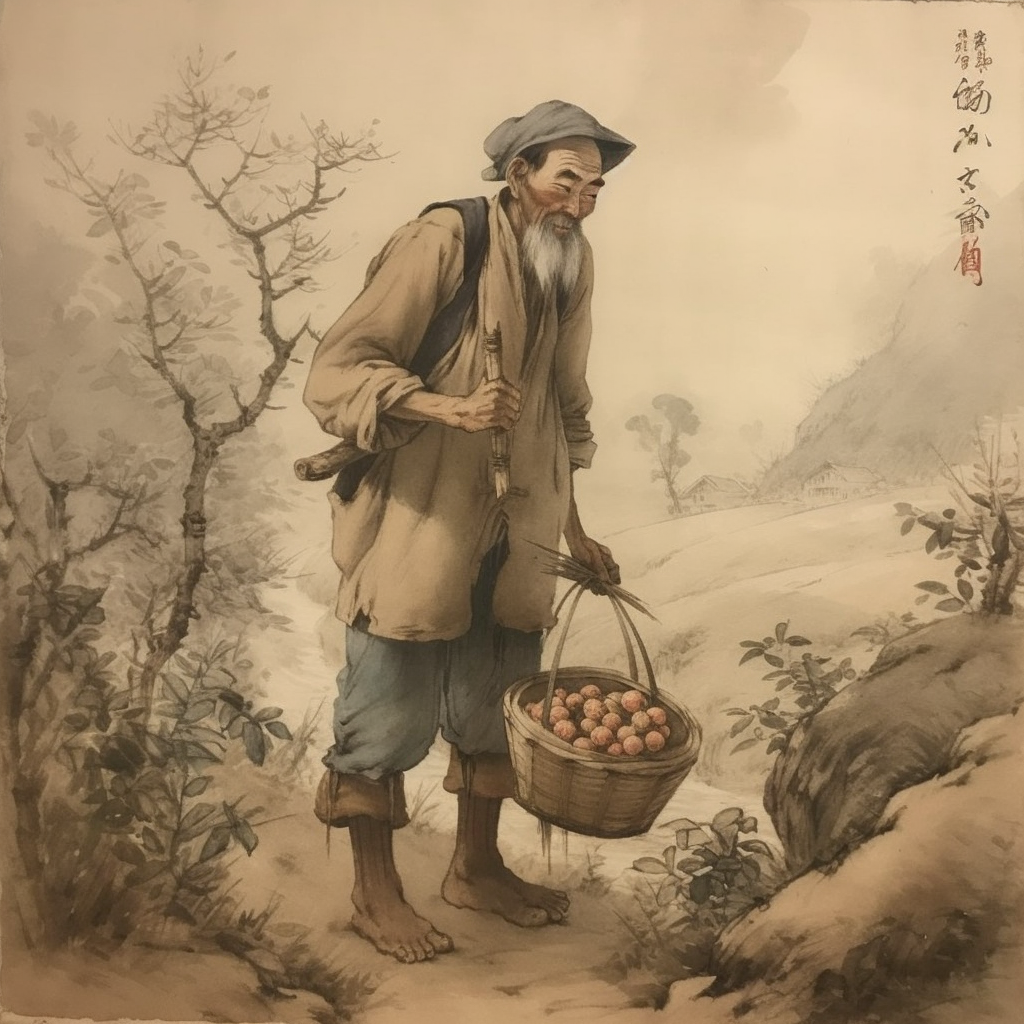Emotional Alchemy
Transform your challenges into catalysts for personal and spiritual growth by embracing emotional resilience. Instead of ignoring how you feel, learn how to integrate your emotions so you can enhance your ability to adapt and recover from stress and adversity. Find out how re-framing challenges can become opportunities that lead to spiritual growth.
My education on emotional resilience began after I graduated from college. For 9 years, I continually grew and perfected my understanding of how to navigate my emotions in stressful situations through being a waitress. When I first began, I was extremely fragile and remember crying in the restaurant’s basement because I didn’t know how to manage how I felt. Over the years, I studied what was happening inside of me and used it as a wonderful opportunity to not only get to know myself better but evolve in the process. Being emotionally resilient is something we can all learn and it’s an extremely beneficial quality to cultivate. So, let’s take a closer look and learn how we can embrace life's challenges as opportunities for growth and self-discovery.
Healthy Coping Strategies
Emotional resilience is the ability to adapt and bounce back from adversity, stress, and challenging experiences. It involves effectively managing emotions, maintaining a positive outlook, and coping with difficult situations in a healthy manner. Ignoring the problem by turning to emotional eating, self-criticism or dwelling on negative thoughts and feelings all fall under the category of unhealthy coping strategies. Emotional resilience is not about avoiding negative emotions, but rather about recognizing and managing them in a way that promotes growth and learning. In this way, it’s something everyone can access and cultivate in their life.
Being emotionally resilient is an essential aspect of personal growth and well-being. Emotional resilience matters for several reasons, including improved mental health, as it enables individuals to effectively manage their emotions and cope with challenging situations. Additionally, emotional resilience allows for faster recovery from adversity, leading to a quicker regain of balance and well-being. Enhanced coping skills, developed through emotional resilience, better equip people to handle stress and adversity, while also fostering a greater sense of life satisfaction through a stronger sense of purpose and meaning. Finally, emotional resilience contributes to better relationships by enabling individuals to effectively manage conflicts, communicate efficiently, and maintain a positive attitude during difficult times.
Emotional resilience is often perceived as a psychological quality, but it extends far beyond the realm of the mind. From a spiritual standpoint, emotional resilience is a reflection of our inner strength and spiritual growth. It represents our ability to tap into a deep wellspring of inner wisdom, allowing us to navigate the storms of life with grace and equanimity. Central to the spiritual dimensions of emotional resilience is the practice of mindfulness. Cultivating present-moment awareness allows us to become grounded in our inner experience, free from the pull of past regrets or future anxieties. By embracing non-judgment and self-compassion, we can approach our emotions with curiosity and openness, granting ourselves the space to grow and evolve.
The Alchemy of Emotional Resilience: Transforming Challenges into Opportunities
True emotional resilience requires a fundamental shift in perspective, transforming challenges into opportunities for growth and self-discovery. By reframing our adversities as catalysts for personal transformation, we can begin to find meaning and purpose in the most difficult of circumstances.
Gratitude, too, plays a pivotal role in cultivating emotional resilience. When we express gratitude for our challenges, we shift our focus from what is lacking in our lives to what is present, opening ourselves to the gifts and lessons that adversity offers.
The ability to transmute negative emotions into positive energy is a powerful tool in the arsenal of emotional resilience. Through intention and visualization, we can harness the energy of our emotions, directing it toward personal growth and spiritual development.
Practices to Ignite Your Spiritual Journey to Emotional Resilience
Embarking on a spiritual journey to emotional resilience may seem daunting, but with the right practices and mindset, you can unleash the transformative power within you. Here are some unique and creative practices to help you cultivate emotional resilience:
1. Embrace the Alchemist Mindset: Approach challenges with curiosity and an open heart, viewing each obstacle as an opportunity to transform and grow. Recognize that adversity is the crucible in which your inner strength and wisdom are forged.
2. Gratitude Journaling: Dedicate time each day to reflect on your life's challenges and write about the lessons and blessings they have brought you. This practice shifts your focus to the positive aspects of your life, helping you develop a more optimistic outlook.
3. Emotional Energy Transmutation: When negative emotions arise, pause and acknowledge them. Then, visualize these emotions as raw energy that can be redirected toward your personal growth and spiritual development. For example, imagine transforming anger into determination or fear into courage.
4. Mindful Meditation: Develop a regular meditation practice to cultivate self-awareness and emotional balance. Focus on your breath and observe your thoughts and emotions without judgment, allowing them to flow through you, and gaining insight into your emotional patterns.
5. Affirmation Crafting: Create personalized affirmations that empower and inspire you during challenging times. Repeat them daily to reinforce positive beliefs and cultivate emotional resilience.
6. Seek Out Inspirational Stories: Immerse yourself in stories of individuals who have overcome adversity and transformed their challenges into opportunities for growth. These stories can provide motivation and perspective on your own journey toward emotional resilience.
7. Nature Immersion: Spend time in nature to observe its inherent resilience and adaptability. Allow the natural world to inspire and inform your own emotional resilience practice, reminding you that growth and renewal are intrinsic to life.
8. Creative Expression: Channel your emotions into art, writing, music, or dance as a means of transforming and releasing them. Creative expression can be a powerful avenue for self-discovery and emotional healing.
9. Foster a Supportive Community: Connect with others who share your values and are committed to personal growth. Share your challenges and triumphs and support one another on your journeys toward emotional resilience.
10. Engage in Self-Compassion: Treat yourself with kindness and understanding when facing challenges, recognizing that emotional resilience is a lifelong journey. Acknowledge your progress and celebrate your victories, no matter how small they may seem.
Let the Light In
As you embrace the benefits of cultivating emotional resilience, it's essential to remember that this journey is an ongoing process, not a one-time achievement. By embracing the alchemy of emotional resilience, we invite transformation and growth into our lives, turning challenges into opportunities for self-discovery and personal evolution. As you continue to cultivate emotional resilience, you'll find an inner strength and wisdom that will not only empower you to face life's adversities but also illuminate the path toward greater spiritual awakening and purpose.
In the words of the great Persian poet Rumi, “The wound is the place where the Light enters you." Embrace your wounds and imperfections as opportunities for growth, and let the light of resilience, compassion, and self-awareness guide you on this journey. As you implement these practices and nurture your emotional resilience, you'll discover that the most challenging moments in life can become your greatest teachers and catalysts for change. So, embark on this transformative journey, and embrace the beautiful alchemy of emotional resilience that lies within you.
I help people align with their potential. If you’re ready to find a deeper connection with what truly matters, click here.
Taoism
Let the ancient wisdom of Taoism guide your spiritual growth as you seek to align with your true potential. Explore the origins and learn about wu-wei, the art of effortless action. By embracing Taoist teachings, we can cultivate inner peace, balance and harmony to transcend the limitations of modern life and naturally move towards a fulfilling life.
Rooted In Flow
My journey with Taoism began during my college years when I stumbled upon this ancient Chinese philosophical and religious tradition. Its emphasis on living in harmony with the natural world instantly captivated me. Rooted in indigenous Chinese beliefs and practices, Taoism has evolved through a tumultuous history, at times serving as China's official religion and at other times, nearly being eradicated during the Cultural Revolution. Yet, Taoism has endured, and together with Confucianism, stands as one of the great philosophical traditions native to China. I’d like to share how Taoism is still absolutely relevant to the modern-day seeker and how one of the core concepts can be folded into our lives.
The History of Taoism
Although the exact origins of Taoism are difficult to trace, it is generally believed to have developed around the 6th to 4th centuries BCE. Lao Tzu, also known as Laozi, is a legendary figure in Chinese history and is considered the founder of Taoism. He is believed to have lived around the 6th century BCE, although the exact dates of his life are debated among scholars. The name "Lao Tzu" can be translated as "Old Master" or "Venerable Master," reflecting the reverence with which he is regarded. He is traditionally attributed as the author of the Tao Te Ching, one of the most important texts in Taoist philosophy. It offers profound wisdom on living in harmony with the natural world, emphasizing the importance of flexibility, adaptability, and balance in life.
In Taoism, "the Way" (Tao) is a fundamental concept that represents the natural order and harmony of the universe. The Tao is often described as an indescribable force that underlies all existence and cannot be fully comprehended through human language or thought. It is the ultimate reality, the source of all things, and the guiding principle of the cosmos. The Tao is both transcendent and immanent, meaning that it exists beyond the physical world while also being present within it. I can still recall my young mind grappling with this definition/non-definition of the Tao. As a young student, I found this notion challenging to comprehend, but I've since discovered that the true essence of Taoism can only be grasped by living its teachings.
Over time, my understanding of the Tao has evolved. Once, I perceived the Tao as synonymous with movement, but now I recognize it as a Presence that encompasses movement without being defined by it. Meaning, the movement is secondary to the primary position of expanding consciousness that is still, yet active. This seeming contradiction is central to Taoist principle of “wu-wei”, or the art of effortless action. Wu-wei litrally means “no action” or “non-action”. It is the practice of moving in harmony with the natural flow of the universe, allowing life to unfold without resistance or struggle.
The Taoist Farmer
There's an ancient Taoist story of a farmer who lost his horse. Instead of lamenting his misfortune, he remained calm and accepted the turn of events. Soon, the horse returned with three wild horses, and the farmer's neighbors praised his good luck. However, the farmer's son broke his leg while trying to tame one of the wild horses, and the neighbors sympathized with the farmer's bad luck. Yet, the farmer remained accepting and detached, and soon after, an army invaded the region, conscripting all able-bodied young men. The farmer's son was spared due to his injury, and the farmer's neighbors marveled at his good fortune. This story illustrates the essence of wu-wei, accepting the natural flow of life without resistance. The farmer didn’t get attached to the idea of good or bad, but simply allowed the unfolding of life to flow uninhibited.
Cultivating Wu-wei
When it comes to seeking our purpose, this cornerstone of Chinese philosophy can be our guide. From the perspective of The Living Art, finding your purpose is about aligning with your greater potential. I explore this topic further in my post “What Is My Purpose?” This core alignment requires a certain flexibility because it’s not a predetermined path. In this context, wu-wei encourages us to remain open and receptive to the natural flow of life instead of being rigid and tense. By embracing non-action and releasing our preconceived notions of what our purpose should be, we create space for the universe to reveal our true path.
Cultivating wu-wei in regard to aligning with your potential can be a very supportive practice that involves:
Trusting intuition: Pay attention to the subtle messages and synchronicities that guide you toward your path. Open up to a greater intelligence and trust the wisdom of your inner voice.
Embracing uncertainty: Do not fear the unknown. Instead, welcome the mystery and potential for growth that comes with uncertainty so you can welcome a new vision into your life.
Being adaptable: Remain flexible and open to change. Understand that your potential may reveal itself in layers and evolve over time, so adapt as needed while you let go and follow.
Mindful observation: Pay attention to the present moment without judgment or expectation. Notice the subtle cues from your environment by learning to “listen” and respond accordingly.
Surrender: Accept that you cannot control every aspect of life. Release the need to micromanage and trust the natural process of unfolding that is inviting you on a journey.
Patience: Allow things to unfold in their own time. Do not force progress or rush toward a specific outcome, thinking you must pounce on something or else you’ll miss out.
Being present: Anchor yourself in the present moment. This is the only place where true change and transformation can occur, so it’s an essential to become grounded in the Now.
Nurtured by nature: Nature serves as a profound teacher in Taoist thought. Observe the countless lessons on harmony, resilience, and the cyclical nature of existence to harmonize with nature.
Taoists believe that by understanding and living in harmony with the Tao, individuals can achieve inner peace, balance, and spiritual growth. This involves cultivating virtues such as simplicity, humility, and compassion, and embracing the natural flow of life without resistance. When we limit ourselves, we impinge upon the effortless flow of the Tao and create friction in our own lives. Letting go then, becomes a restoration of what is intrinsic and natural within all of us. Spending time in the presence of nature allows us to emulate the fluidity of water, the rootedness of trees, and the boundlessness of the sky to bring us closer to the wisdom of the Tao.
Lao Tzu's Advice
If we could sit with Lao Tzu and ask him about our purpose, I wondered how he might respond? I imagine that he would likely advise us to embody wu-wei as we seek our purpose, allowing the answers to emerge naturally rather than forcing a specific outcome. Lao Tzu might say to us, "Do not search for your purpose, but instead let it find you. Move through life with grace and ease, aligned with the Tao, and your purpose will reveal itself." We can then follow his guidance by practicing stillness, being present to life and embracing the journey because purpose is the process of aligning with potential—a natural flourishing of the Tao. By integrating wu-wei into our daily lives, we create the conditions for our purpose to reveal itself organically. Through non-doing, we open ourselves to the wisdom of the universe, allowing our true path to emerge and guide us toward a life of meaning, fulfillment, and harmony.
The ancient wisdom of Taoism offers a refreshing perspective on life, urging us to slow down, embrace simplicity, and cultivate inner balance. By integrating the principles and practices of Taoism into our daily lives, we can embark on a transformative journey of self-discovery and spiritual growth, ultimately realizing our true potential. As we align ourselves with the Tao and embody its timeless teachings, we empower ourselves to create a life of harmony, fulfillment, and inner peace, transcending the limitations of our modern world and embracing the boundless possibilities that lie within.
I help people align with their potential. If you’re ready to find a deeper connection with what truly matters, click here.















